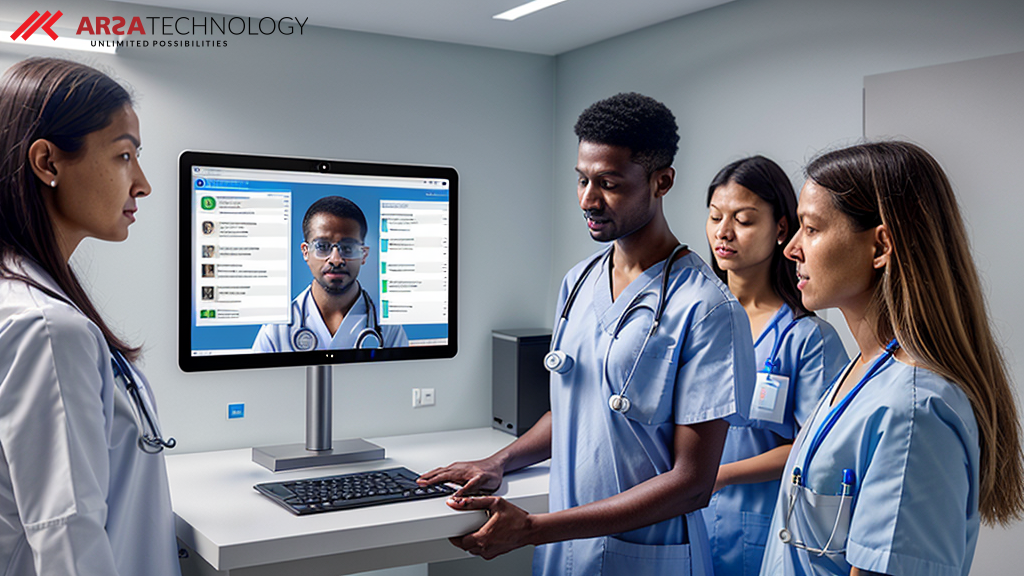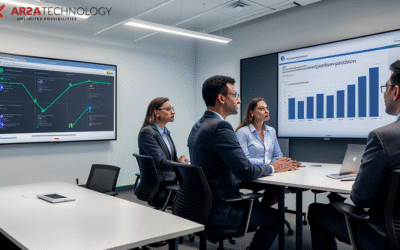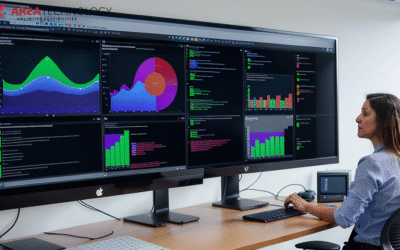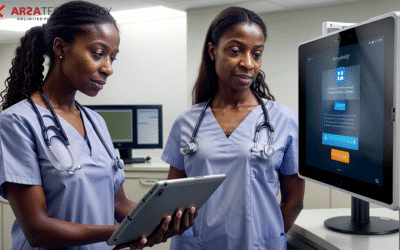Introduction: Overcoming Medical Record Data Entry Errors in the Healthcare Industry
In the fast-paced and high-stakes world of healthcare, accuracy is paramount. Every piece of information, from patient demographics to medication dosages, directly impacts patient outcomes and operational efficiency. Yet, despite advancements in digital record-keeping, medical record data entry errors remain a persistent and costly challenge. These errors can lead to misdiagnoses, incorrect treatments, compliance violations, and significant financial losses. The root causes are often multifactorial, including human fatigue, manual processes, and, crucially, inadequate identity verification at various access points.
Imagine a scenario where a healthcare professional inadvertently accesses or updates the wrong patient’s file due to a simple login mix-up, or where unauthorized personnel gain access to sensitive areas. Such incidents not only compromise patient privacy but also erode trust and expose institutions to severe legal and financial repercussions. This is where advanced biometric solutions, specifically high-performance face recognition APIs, offer a transformative solution. By integrating robust identity verification into physical access control management and system logins, healthcare providers can drastically reduce the potential for human error and enhance overall data integrity. ARSA Technology’s Face Recognition API is engineered precisely for these demanding environments, providing the speed, accuracy, and reliability required to safeguard patient data and streamline operations.
The Hidden Costs of Data Entry Errors in Healthcare
Medical record data entry errors are not merely minor inconveniences; they are a systemic issue with far-reaching consequences. Studies consistently highlight the financial burden, with estimates ranging into billions of dollars annually due to rework, legal fees, and compromised patient care. Beyond the monetary aspect, these errors can:
- Jeopardize Patient Safety: Incorrect medical histories, medication lists, or treatment plans can lead to adverse events, prolong recovery times, or even be fatal.
- Undermine Trust: Patients expect their sensitive health information to be handled with the utmost care and accuracy. Errors erode this fundamental trust.
- Increase Operational Inefficiency: Correcting errors consumes valuable staff time and resources that could otherwise be dedicated to patient care.
- Lead to Regulatory Penalties: Compliance with regulations like HIPAA (Health Insurance Portability and Accountability Act) is non-negotiable. Data breaches or inaccuracies can result in hefty fines and legal action.
Many of these errors can be traced back to identity verification lapses. If the wrong individual accesses a system or a physical location, the potential for error or malicious activity escalates dramatically. Traditional methods like password-based logins or badge access, while foundational, are prone to sharing, theft, or simple human forgetfulness, creating vulnerabilities that modern healthcare cannot afford.
How Face Recognition Transforms Access Control and Data Integrity
Implementing a sophisticated face recognition system for physical access control management and secure login processes directly addresses the core problem of identity verification in healthcare. By ensuring that only authorized individuals can access specific areas or digital systems, the likelihood of human error leading to data inaccuracies is significantly reduced.
Consider these applications:
- Secure Facility Access: Granting entry to sensitive areas like operating rooms, pharmacies, or data centers only after a verified facial scan. This prevents unauthorized personnel from being in a position to cause data entry errors or compromise equipment.
- Authenticated System Login: Requiring facial recognition for logging into electronic health record (EHR) systems or other critical applications. This ensures that the person interacting with the data is indeed the authorized professional, preventing accidental misidentification and subsequent data entry mistakes.
- Medication Dispensing Verification: Integrating face recognition into automated dispensing cabinets to ensure the correct nurse or doctor is accessing and administering medications.
These applications not only bolster security but also streamline workflows, allowing authorized personnel faster, more convenient access while maintaining an ironclad audit trail. To see the Face Recognition API in action, try our interactive demo on RapidAPI.
Evaluating Performance: Key Metrics for Healthcare Environments
For a face recognition API to be effective in high-volume healthcare settings, its performance must be exceptional across several critical dimensions. Developers and solutions architects must look beyond basic functionality and evaluate metrics that directly impact patient safety and operational efficiency:
- Accuracy (False Acceptance Rate – FAR, False Rejection Rate – FRR): In healthcare, a high False Acceptance Rate (allowing an unauthorized person) is catastrophic, while a high False Rejection Rate (denying an authorized person) can cause critical delays. ARSA Technology’s Face Recognition API is built on advanced algorithms that deliver industry-leading accuracy, minimizing both types of errors to ensure reliable and secure access. This precision is vital for secure identity verification solutions in sensitive environments.
- Speed (Latency): Healthcare environments are often time-sensitive. A slow recognition process can impede critical workflows, from emergency room admissions to medication dispensing. ARSA’s API is optimized for rapid processing, ensuring near-instantaneous verification that doesn’t create bottlenecks.
- Scalability: Healthcare systems serve vast populations and employ thousands of staff. The API must be able to handle a high volume of concurrent requests and a large database of enrolled faces without degradation in performance. ARSA Technology’s infrastructure is designed for enterprise-grade scalability, capable of expanding to meet the demands of even the largest healthcare networks.
- Reliability and Uptime: Any system critical to patient care must be consistently available. ARSA Technology commits to high availability and robust infrastructure, minimizing downtime and ensuring continuous operation.
- Robustness to Environmental Factors: Healthcare settings can have varying lighting conditions, and individuals may wear masks or glasses. The API must perform consistently despite these real-world variables. ARSA’s algorithms are trained on diverse datasets to ensure high performance across a wide range of conditions.
ARSA Technology’s Face Recognition API: Engineered for Healthcare Demands
ARSA Technology understands the unique challenges and stringent requirements of the healthcare industry. Our Face Recognition API is not just a general-purpose biometric tool; it’s a high-performance solution designed with the specific needs of medical institutions in mind.
- Uncompromising Accuracy for Critical Applications: Our API delivers the precision necessary to differentiate between individuals with extremely high confidence, drastically reducing the risk of misidentification that could lead to medical record errors. This level of accuracy is fundamental for securing access to patient data and physical facilities.
- Blazing Fast Verification: In emergencies or high-traffic areas, speed is non-negotiable. Our API processes facial scans in milliseconds, ensuring that authorized personnel can gain access without delay, maintaining the flow of critical operations.
- Scalable Infrastructure for Growing Needs: Whether you are a small clinic or a multi-hospital system, our API scales effortlessly. It can manage a vast number of enrolled users and concurrent verification requests, ensuring consistent performance as your organization grows.
- Enhanced Security with Liveness Detection Integration: To counter sophisticated spoofing attempts (e.g., using photos or videos), ARSA Technology offers a robust Face Liveness Detection API. Integrating this alongside face recognition provides an additional layer of security, ensuring that the person presenting their face is a living, present individual. This is crucial for preventing fraud with liveness detection and maintaining the integrity of your access control systems.
- Seamless Integration for Developers: While we don’t provide code examples here, our API is designed for straightforward integration into existing healthcare IT infrastructure. Our comprehensive documentation and developer support ensure that your team can implement our solution efficiently, focusing on delivering value rather than grappling with complex technical hurdles.
By leveraging ARSA Technology’s Face Recognition API, healthcare providers can move beyond reactive error correction to proactive error prevention. This strategic shift not only safeguards patient data and improves safety but also enhances operational efficiency, reduces compliance risks, and ultimately fosters greater trust within the community.
The Business Value: Beyond Error Reduction
While the primary focus is on mitigating medical record data entry errors, the adoption of ARSA Technology’s Face Recognition API delivers a cascade of additional business benefits for healthcare organizations:
- Improved Patient Experience: Faster, frictionless access for staff means more time dedicated to patient care and less time on administrative tasks or security checks.
- Cost Savings: Reduced errors mean fewer reworks, fewer legal liabilities, and lower administrative overhead. The efficiency gained from streamlined access also contributes to overall cost reduction.
- Enhanced Security Posture: A robust biometric access system significantly elevates the overall security of facilities and digital assets, protecting against both internal and external threats.
- Compliance Assurance: Demonstrating advanced identity verification measures strengthens compliance efforts for data privacy regulations, reducing the risk of penalties.
- Competitive Advantage: Adopting cutting-edge technology positions healthcare providers as innovators committed to safety, efficiency, and patient well-being, attracting both top talent and patients.
Conclusion: Your Next Step Towards a Solution
The challenge of medical record data entry errors in healthcare is significant, but the solution is within reach. By adopting high-performance face recognition APIs for physical access control and system authentication, healthcare organizations can create a more secure, efficient, and error-resistant environment. ARSA Technology’s Face Recognition API offers the accuracy, speed, and scalability demanded by the most critical healthcare applications, empowering developers and technical leaders to build solutions that safeguard patient data and elevate operational standards.
It’s time to move beyond traditional security measures and embrace the future of identity verification. Explore how ARSA Technology can help your organization achieve unparalleled data integrity and operational excellence.
Ready to Solve Your Challenges with AI?
Discover how ARSA Technology can help you overcome your toughest business challenges. Get in touch with our team for a personalized demo and a free API trial.







